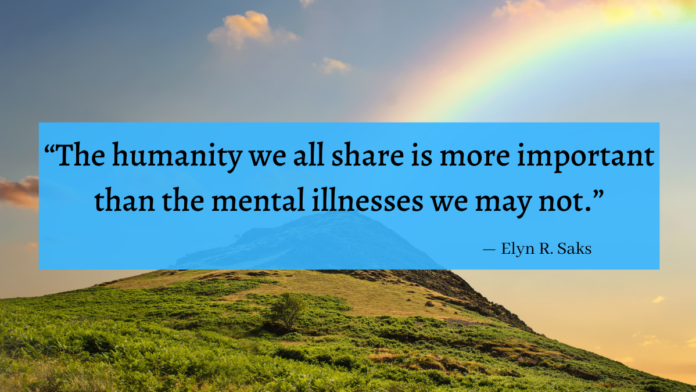As it is Mental Health Awareness Month, it’s a good time to share resources, tips and techniques about mental health and wellness. After a decade-plus of living with depression and anxiety, I am proud of how I’ve learned to manage my mental health challenges. However, chronic mental health issues can mean I sometimes go through my day on auto-pilot, which isn’t great for my mental health. That’s why I want to re-share a few things I turn to when I want to work on my health and build mental wellness. While there are a lot more tips and techniques in this area, these are five things that work well for me. Hope you find this information helpful!
Meditation
My journey with meditation has been lengthy, but I’m finally at a place where I can confidently say it’s part of my mental health toolkit. Meditation has grown in its importance and value in my day-to-day life, and I’d say there are more days than not that I get in a meditation session or two. What I enjoy most about meditation is that I’ve stopped seeing it as a solution to my problems, and more as a practice and way of being. While I wouldn’t go so far as to say meditation is the perfect solution for everyone (I’ve tried it more than a few times), it doesn’t hurt to try!
Exercise
You might already be aware, but physical exercise can play a big role in improving one’s mental health. While it’s important to make sure people have a healthy relationship with exercise and working out, I know that it can also be damaging to only do things when I have the proper motivation (thank you, depression!). Exercising, in any capacity, has the opportunity to give someone a brief confidence boost, raise the heart rate more than it might previously, and make us feel like we have accomplished something. There are many other benefits to physical exercise, but I’ve come to appreciate the benefits to my mental health and wellness more than anything else.
Therapy (There’s More Than One Type!)
Shocker, I know – a mental health blogger suggesting therapy. But I want to go beyond the generic “therapy is good for you” advice and take things a step further. Instead of suggesting that people look into therapy more, I want you challenge what your idea of therapy is. Yes, there is sitting in a room with a therapist, or on a Zoom call with a mental health professional; but therapy is so much more than that. There are several types of talk therapy, including Cognitive Behavioral Therapy (CBT), Dialectal Behavior Therapy (DBT), Mentalization-based therapy (MBT) and so many more. And even beyond that, there are types of therapy that involve activities and movement, going beyond talking and trying to meet the needs of other parts of who we are. I’m not here to say that therapy will solve all your problems, but it is often a safe place to figure out where you can start.
Getting to Know Myself
One important part of building my mental wellness is improving my relationship with someone very important — myself. We spend our entire lives getting to know ourselves, understanding who we are and how we see the world. But there are some things about ourselves that are hard to come to terms with. Maybe it’s part of our personality, or an experience we went through, but all of these things encompass who we are and why we act the way we do. When I think about my mental health challenges, I know that there are aspects of my personality don’t play a significant role in why I deal with anxiety and depression. But those aspects do make up the person I am, and understanding how I see the world helps me understand how it impacts me. I know this might sound a little off-the-wall but the more I’ve focused on understanding why I do things, the more I’ve understood my mental health challenges.
Reflection
Whether it’s through journaling, talking with people or simply sitting and doing some thinking, reflecting on my mental health journey has done some amazing things for my mental wellness. When I reflect on the journey I’ve had, I can see my growth. I can see the improvements I’ve made, and the ways I’ve gotten better at managing anxiety and depression. Upon reflection, I can also look at the ups and downs with a gentler lens that I’d been able to before. I’m not perfect, and I’m never going to be. But rather than chase perfectionism and “getting rid of” my mental health challenges, my reflection leads to gratitude. To being proud of who I am and what I’ve experienced. And it’s that attitude that has made me stronger, braver, and better equipped to face the challenges that I know lie ahead of me. And I know that upon reflection of what we’ve been through, many people reading this might feel the same way.
While these are important ways to build mental health and wellness, they’re far from the only ones! What do you do to build mental wellness in your day-to-day life, and what helps you work on your mental health? Let me know in the comments below!




